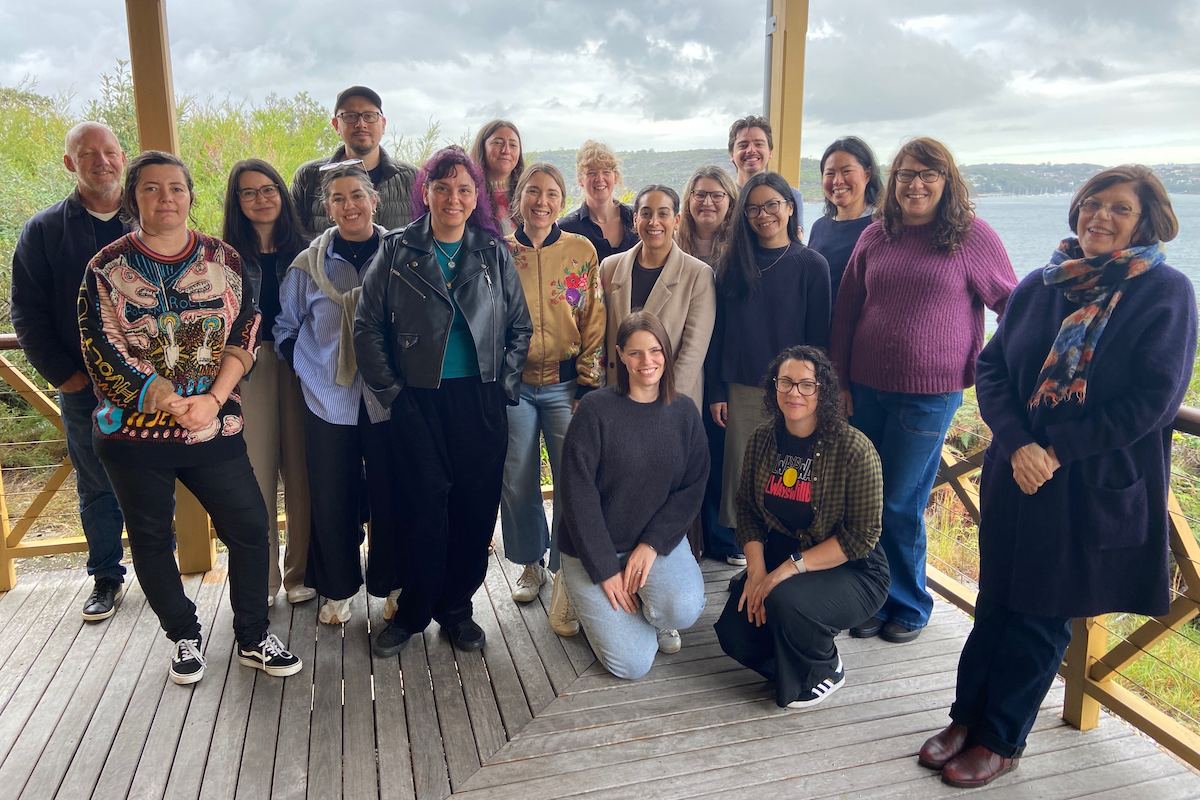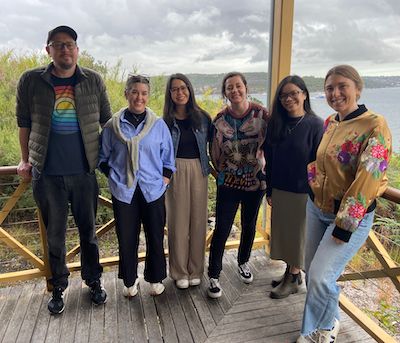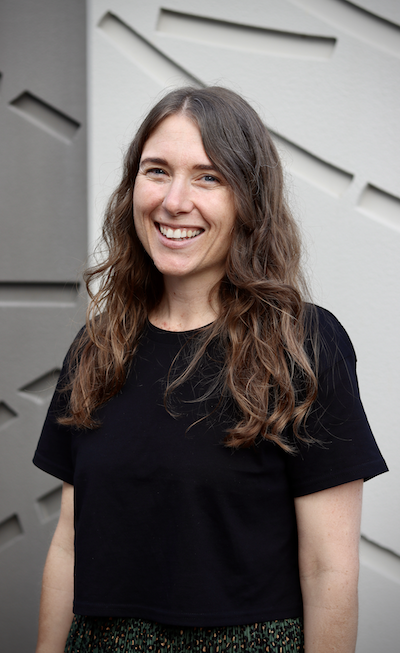 The REP 2024 participants and mentors at Q Station in Manly.
The REP 2024 participants and mentors at Q Station in Manly.
20/05/2024
The APA’s Residential Editorial Program (REP) took place in Sydney earlier this month, with 15 mid-career editors participating in the biennial program on the craft of editing.
The editors at REP worked on an unpublished manuscript with mentors Linda Funnell, Grace Lucas-Pennington and Malcolm Knox, before coming together at the end of the week to hear from the manuscript’s editor.
They also received presentations from a range of editing experts. This included freelance editor Ali Lavou, Magabala publisher Rachel Bin Salleh, Pantera publisher Tom Langshaw, Allen & Unwin editor and Beatrice Davis Editorial Fellow Sophie Splatt, and UNSW Press chief executive Kathy Bail.
Freelance editor Bianca Valentino described the program as ‘life-changing’, while Penguin Random House Australia senior editor Melissa Lane said:
‘The REP was such a wonderful program that exceeded my high expectations. It was amazing to get to know and learn from so many others in the industry, and to immerse ourselves in all things editing and publishing over the four days of the course.’
Reflections on a rich and rewarding REP
Perth-based freelance writer, editor and education consultant Casey Mulder was a participant of this year’s REP. Here she shares her highlights from the program, and reflects on the importance of sharing knowledge between in-house and freelance editors.
Gathering with other freelance and in-house editors for REP 2024 was such fantastic professional development. We met at the unique Q Station conference facilities and the ‘personality’ of the place only added to the experience. We were generously welcomed to Country on the first morning by Susan Moylan-Coombs, and enjoyed the fantastic views. Speculating about whether the place is haunted or not provided much entertainment throughout the week.
 Casey, far right, with her REP group and their mentor Grace Lucas-Pennington, third from right.
Casey, far right, with her REP group and their mentor Grace Lucas-Pennington, third from right.
Rich editing practice with diverse perspectives
The days were rich in content and discussion.
Throughout the week we had the privilege of working through a manuscript and collaboratively editing it. I found this experience valuable in the sharing of perspectives, and the strategising about how best to communicate recommended changes with an author.
Grace Lucas-Pennington was a brilliant mentor – structured and flexible in her approach – and the manuscript itself was well-chosen for this purpose. I thoroughly enjoyed working through the structural edit with my group.
The session with the manuscript’s editor and publisher on the final day was the perfect conclusion to this process.
Author insights and engagement
Throughout the week we heard from a number of author/editor teams. As a freelance editor whose contact is predominantly with in-house editors and publishers, hearing about the author’s experience of the editing process was fascinating. It gave me insight into how I can better communicate through my comments on a manuscript – ensuring that I’m highlighting the elements that are working well, alongside recommended changes.
As a freelancer, these sessions also gave me the confidence to ask to speak directly with an author when this would be a helpful addition to the editing process. The discussions were focused on the importance of communication and trust in the author/editor relationship, and I feel empowered to navigate the editing process with greater intentionality in this regard.
Important discussions and expanding horizons
Sophie Splatt shared her knowledge of editing graphic novels. Having never edited a graphic novel before, this session from the Beatrice Davis Editorial Fellow was especially eye-opening.
We were privileged to hear from Rachel Bin Salleh from Magabala Books on editing First Nations voices, and this session was a highlight for me as a First Nations editor. A session on culturally sensitive editing from Grace Lucas-Pennington was the catalyst for an important group discussion about cultural sensitivity reads.
Everyone was willing to share what they’ve learned, both speakers and participants, and I took copious amounts of notes. I found Ali Lavau’s session especially beneficial, as she spoke about her editing process and the nature of her structural reports.
Connection and community
Meeting other people within the publishing industry throughout the week was also a highlight for me. I hadn’t previously had the chance to meet many editors outside of WA and I felt encouraged to hear that everyone’s journey into publishing has been unique.
Discussions with fellow participants over meals and breaks allowed for opportunities to debrief the sessions, and provided informal opportunities to ask each other questions. I was able to connect with other freelancers around their processes – particularly regarding setting healthy boundaries that enable self-care when working from home and working for yourself. The in-house editors helped me better understand the publishing process in its entirety.
Being selected for the Residential Editorial Program was an honour. This was an absolutely brilliant experience, and I am grateful for the growing network of editors I can now reach out to. I would like to thank the APA for the opportunity, and I encourage editors to apply for the REP in the future.

Casey Mulder is a Ballardong Noongar yorga with Dutch and English heritage. She works in a variety of education roles, and is a freelance editor and writer, having worked with HarperCollins, Audible, University of Western Australia Press, Night Parrot Press, Affirm Press and Magabala Books. She facilitates the First Nations Write Night at the Centre for Stories with Luisa Mitchell, and is currently working on a creative non-fiction manuscript with the support of the Centre for Stories, Magabala Books and Australian Indigenous Coffee. Casey is also the First Nations editor for Westerly Magazine.
About the Residential Editorial Program
The Residential Editorial Program provides an intensive program for mid-career editors to work with experienced mentors and speakers. REP has become renowned in Australian publishing as a defining professional development opportunity for editors. Over 135 editors have now graduated from the program since it was established in 1999, with many progressing to significant editorial roles in the Australian industry, as managing editors and publishers.
